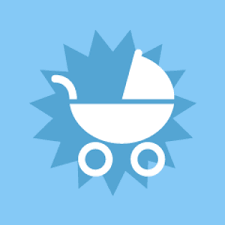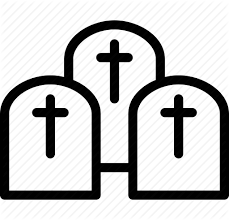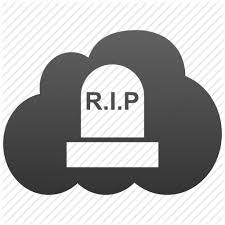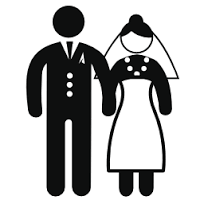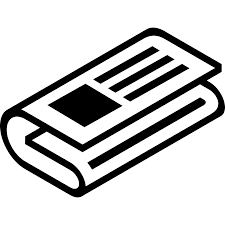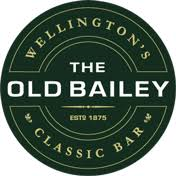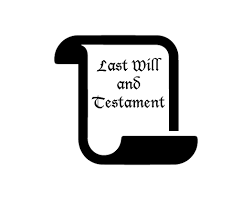| |
Date |
Event(s) |
| 1 | 1583 | - 1583—1583: University of Edinburgh founded
- 1583—1583: Foundation of Cambridge University Press by Thomas Thomas
- Aug 1583—Aug 1583: Sir Humphrey Gilbert attempts to establish English authority at St John's,
Newfoundland
|
| 2 | 1584 | - 4 Jun 1584—4 Jun 1584: Sir Walter Raleigh establishes first English colony in the New World, on
Roanoke Island, Virginia (now in North Carolina) - the so-called 'Lost Colony'
|
| 3 | 1585 | - 1585—1585: Foundation of Oxford University Press
|
| 4 | 1587 | - 1587—1587: Introduction of potatoes to England
- 8 Feb 1587—8 Feb 1587: Execution of Mary, Queen of Scots, at Fotheringay Castle, near Peterborough
- 19 Apr 1587—19 Apr 1587: Sir Francis Drake sinks the Spanish fleet in Cadiz harbour
- 11 Aug 1587—11 Aug 1587: Raleigh's second expedition to New World lands in North Carolina - first child
born in the New World of English parents was Virginia Dare (Aug 18)
|
| 5 | 1588 | - 1588—1588: Invention of shorthand by Dr Timothy Bright
- 19 Jul 1588—19 Jul 1588: Spanish Armada sighted off the Lizard (had set sail from Lisbon in late May)
- 29 Jul 1588—29 Jul 1588: Defeat of Spanish Armada off Gravelines
|
| 6 | 1591 | - 1591—1591: Trinity College, Dublin, founded
|
| 7 | 1592 | - 1592—1592: A Congregational (or Independent) Church formed in London
- 1592—1592: Scotland: Presbyterian Church formally established - all ministers equal - no bishops -
secular commissaries appointed by the Crown
|
| 8 | 1593 | - 1593—1593: British statute mile established by law
|
| 9 | 1594 | - 1594—1594: Hugh O'Neill, Earl of Tyrone, leads Irish rebellion against English rule (-1603)
|
| 10 | 1597 | - 1597—1597: Poor Law Act for erection of parish workhouses for the Poor - Poor Rate collection
allowed
|
| 11 | 1598 | - 1598—1598: Bishop's transcripts of English and Welsh parish registers start - parish records were to
be kept in 'great decent books of parchment' and copies or 'Bishop's Transcripts' of new entries
were to be sent each month to the diocesan centre
|
| 12 | 1600 | - 1 Jan 1600—1 Jan 1600: Scotland adopts New Year beginning 1st January (previously 25th March)
- 31 Dec 1600—31 Dec 1600: British East India Company founded
|
| 13 | 1601 | - 1601—1601: Great English Poor Law Act passed
- 1601—1601: First use of fruit juice as a preventative for scurvy by James Lancaster
|
| 14 | 1602 | - 20 Mar 1602—20 Mar 1602: Dutch East India Company founded
- 8 Nov 1602—8 Nov 1602: Bodleian Library at Oxford University opened to the public
|
| 15 | 1603 | - 24 Mar 1603—24 Mar 1603: Death of Elizabeth I: union of Scottish and English crowns - under King James
VI of Scots and I of England (d. 1625)
- 25 Jul 1603—25 Jul 1603: Coronation - James VI of Scotland is crowned first king of Great Britain
|
| 16 | 1604 | - 1 Nov 1604—1 Nov 1604: Shakespeare: Othello' first presented
|
| 17 | 1605 | - 5 Nov 1605—5 Nov 1605: Gunpowder plot at Westminster (Guy Fawkes, etc)
|
| 18 | 1606 | - 1606—1606: The London Company chartered to colonise Virginia: the Susan Constant, Godspeed,
and Discovery leave England on 19th De c taking 144 days to reach America
- 1606—1606: Episcopacy established in Scotland (against wishes of the Scots)
- 31 Jan 1606—31 Jan 1606: Guy Fawkes and co-conspirators executed
- 12 Mar 1606—12 Mar 1606: Adoption of Union Flag as the flag of Great Britain' (the term Union Jack is
used officially only when the Union Flag is flown from the Jack Mast of a Royal Naval vessel)
|
| 19 | 1607 | - 14 May 1607—14 May 1607: Jamestown, Virginia settled - to become the first permanent British colony in
North America
|
| 20 | 1608 | - 1608—1608: First use of telescope by Galileo - he observed the moons of Jupiter two years later in
Jan 1610
|
| 21 | 1610 | - 1610—1610: James VI & I established the Episcopal Church in Scotland - Prebyterians persecuted
and many of their records lost
|
| 22 | 1611 | - 1611—1611: Authorised (King James) Version of Bible in Britain
- 22 May 1611—22 May 1611: James VI & I created the title of baronet
|
| 23 | 1613 | - 1613—1613: A copper farthing was produced, as a silver coin would be too small
- 29 Jun 1613—29 Jun 1613: The Globe Theatre in London burns during a performance of Henry the Eighth
(finally pulled down in 1644)
|
| 24 | 1616 | - 23 Apr 1616—23 Apr 1616: Tuesday Apr 23 (Julian calendar): Death of Shakespeare
|
| 25 | 1618 | - 1618—1618: Sir Walter Raleigh beheaded for allegedly conspiring against James I
|
| 26 | 1619 | - 4 Dec 1619—4 Dec 1619: (Nov 24 old style): Colonists from Berkeley Parish in England disembark in
Virginia and give thanks to God (considered by many to be the first Thanksgiving in the
Americas)
|
| 27 | 1620 | - 1620—1620: Manufacture of coke (the fuel, not the drink!) patented by Dud Dudley
- 21 Dec 1620—21 Dec 1620: (Dec 16 old style): The Mayflower reaches America - founds Plymouth, New
England (had initially set sail from Southampton on Aug 5)
|
| 28 | 1621 | - 1621—1621: Chimneys to be made of brick and to be four and a half feet above the roof
|
| 29 | 1622 | - 1622—1622: First English newspaper appeared - Weekly News'
|
| 30 | 1624 | - 1624—1624: Monopoly Act in England: patents protected
- 1624—1624: Edmund Gunter introduces the surveyor's chain (measurement of length)
|
| 31 | 1625 | - 1625—1625: The size of bricks standardised in England around this time
- 27 Mar 1625—27 Mar 1625: Death of King James VI & I
|
| 32 | 1628 | - 1 Mar 1628—1 Mar 1628: Writs issued by Charles I that every county in England (not just seaport towns)
pay ship tax by this date
|
| 33 | 1629 | - 10 Mar 1629—10 Mar 1629: Parliament dissolved by King Charles I - did not meet for another 11 yea
|
| 34 | 1633 | - Jun 1633—Jun 1633: Galileo summoned by Inquisition for publishing in favour of Copernican theory
|
| 35 | 1635 | - 1635—1635: Letter Office of England & Scotland started
- 1635—1635: Flintlock small arms invented around this time (replaces matchlock)
|
| 36 | 1636 | - 1636—1636: Hackney Carriages in use by now in London
|
| 37 | 1638 | - 1638—1638: King Charles regarded protests against the prayerbook as treason - forced Scots to choose
between their church and the King - a ?Covenant' swearing to resist these changes to the
Death was signed in Greyfriars Church Edinburgh and was accepted by hundreds of
thousands of Scots (revival of Presbyterian Church)
|
| 38 | 1639 | - 1639—1639: Act of Toleration in England established religious toleration
|
| 39 | 1640 | - 3 Nov 1640—3 Nov 1640: Charles I forced to recall Parliament (the 'Long Parliament') due to Scottish
invasion
|
| 40 | 1641 | - 1641—1641: Charles I's policies cause insurrection in Ulster and Civil War in England
- 1641—1641: Charles I and the English Parliament acknowledge the Prebyterian Church in Scotland
- 23 Oct 1641—23 Oct 1641: 50,000 Irish killed in an uprising in Ulster
|
| 41 | 1642 | - 1642—1642: The Civil War interrupted the keeping of parish registers
- 1642—1642: English theatres closed by Puritans (till 1660)
- 22 Aug 1642—22 Aug 1642: Charles I raises his standard at Nottingham - First Civil War in England (to
1649)
- 13 Nov 1642—13 Nov 1642: Battle of Turnham Green - Royalist forces withdraw in face of the
Parliamentarian army and fail to take London
- 24 Nov 1642—24 Nov 1642: Abel Janszoon Tasman discovers Van Diemen's Land (now Tasmania)
- 18 Dec 1642—18 Dec 1642: Abel Janszoon Tasman first European to set foot in New Zealand
|
| 42 | 1643 | - 13 Dec 1643—13 Dec 1643: Battle of Alton - victory for Parliamentarians - Sir Richard Bolle killed in St
Lawrence's church
|
| 43 | 1644 | - 29 Jun 1644—29 Jun 1644: Battle of Cropredy Bridge - Royalists beat the Parliamentarian forces
- 2 Jul 1644—2 Jul 1644: Battle of Marston Moor, near York - Parliamentarian forces beat the Royalists
|
| 44 | 1645 | - 1645—1645: Battle of Philiphaugh in Scotland
- 1645—1645: Scotland: Each county and burgh ordered to raise and maintain a number of foot
soldiers, according to population, to serve as militia - population of Scotland estimated at
420,000
- 1645—1645: Plague made its last appearance in Scotland
- 14 Jun 1645—14 Jun 1645: Battle of Naseby: Parliament's New Model Army crushes the Royalist forces
|
| 45 | 1646 | - 5 May 1646—5 May 1646: Charles I surrenders to the Scottish Army at Newark
- 20 Jun 1646—20 Jun 1646: Royalists sign articles of surrender at Oxford
|
| 46 | 1648 | - 1648—1648: Society of Friends (Quakers) founded by George Fox
- 1648—1648: First practical thermometers made
|
| 47 | 1649 | - 1649—1649: Cromwell's Irish campaign starts
- 1649—1649: King Charles II proclaimed King of Scots and England in Scotland
- 6 Jan 1649—6 Jan 1649: 'Rump' Parliament votes to put Charles I on trial
- 30 Jan 1649—30 Jan 1649: King Charles I executed
- 19 May 1649—19 May 1649: Commonwealth declared
- 20 Dec 1649—20 Dec 1649: Theatres banned by Cromwell
- 20 Dec 1649—20 Dec 1649: Christmas banned by Cromwell
|
| 48 | 1650 | - 1650—1650: Coffee brought to England about this time
|
| 49 | 1651 | - 1651—1651: The second English Civil War (1651-1652)
- 1651—1651: Scottish prisoners transported to the British settlements in America
- 3 Sep 1651—3 Sep 1651: Battle of Worcester
|
| 50 | 1653 | - 1653—1653: Commonwealth registers start
- 1653—1653: Under the Act of Settlement Cromwell's opponents stripped of land
- 1653—1653: Provincial probate courts abolished - probates granted only in London
- 20 Apr 1653—20 Apr 1653: Cromwell dissolves the Rump Parliament
- 16 Dec 1653—16 Dec 1653: Oliver Cromwell becomes Lord Protector of the Commonwealth of England,
Scotland and Ireland
|
| 51 | 1657 | - 1657—1657: Post Office established by Act of Parliament [others say 1660]
- 1657—1657: A few Jews permitted to settle in England
|
| 52 | 1658 | - 1658—1658: Richard Cromwell (son of Oliver) Lord Protector (-1660)
- 3 Sep 1658—3 Sep 1658: Death of Oliver Cromwell
|
| 53 | 1659 | - 1659—1659: Start of national meteorological Temperature records in the UK
- 6 Feb 1659—6 Feb 1659: Date of first known bank cheque to be drawn
|
| 54 | 1660 | - 1660—1660: Commonwealth registers ended, Parish Registers resumed
- 1660—1660: Provincial Probate Courts re-established
- 1660—1660: Clarendon code restricts Puritans' religious freedom
- 1660—1660: Composition of light discovered by Newton
- 1660—1660: Honourable East India Company founded by British
- 1 Jan 1660—1 Jan 1660: Samuel Pepys starts his diary
- 29 May 1660—29 May 1660: Restoration of British monarchy (Charles II) - 'Oak Apple Day' - theatres
reopened
- 17 Oct 1660—17 Oct 1660: Ten Regicides are executed at Charing Cross or Tyburn
- 28 Nov 1660—28 Nov 1660: Twelve men, including Christopher Wren, Robert Boyle, John Wilkins, and Sir
Robert Moray decide to found what is later known as the Royal Society
- 8 Dec 1660—8 Dec 1660: First actress plays in London (Margaret Hughes as Desdemona)
|
| 55 | 1661 | - 1661—1661: Restoration of Episcopacy in Scotland
- 1661—1661: Board of Trade founded in London
- 1661—1661: Hand-struck postage stamps first used
- 1661—1661: Corporation Act prevents non-Anglicans from holding municipal office
- 30 Jan 1661—30 Jan 1661: Oliver Cromwell formally 'executed', having been dead for over two years!
|
| 56 | 1662 | - 1662—1662: 'Hearth Tax' introduced - until 1689 (1690 in Scotland)
- 1662—1662: Poor Relief Act or Act of Settlement' - gave JPs the power to return any wandering
poor to the parish of origin (repealed 1834)
- 1662—1662: Tea introduced to Britain
- 24 Aug 1662—24 Aug 1662: Act of Uniformity - Acceptance of Book of Common Prayer required - About
2,000 vicars and rectors driven from their parishes as nonconformists (Presbyterians and
Independents) - Persecution of all non-conformists - Presbyterianism dis-established -
Episcopalian Church of England restored
|
| 57 | 1664 | - 29 May 1664—29 May 1664: Oak Apple Day - the birthday of Charles II and the day when he entered
London at the Restoration; commanded by Act of Parliament in 1664 to be observed as a day
of thanksgiving. A special service (expunged in 1859) was inserted in the Book of Common
Prayer and people wore sprigs of oak with gilded oak-apples on that day.
- 27 Aug 1664—27 Aug 1664: Nieuw Amsterdam becomes New York as 300 English soldiers under Col.
Mathias Nicolls take the town from the Dutch under orders from Charles II. The town is
renamed after the King's brother James, Duke of York
|
| 58 | 1665 | - 1665—1665: Great Plague of London (July-October) kills over 60,000
- 1665—1665: Five-mile Act restricts non-conformist ministers in Britain
- 7 Nov 1665—7 Nov 1665: The ?London Gazette' first published - one of the official journals of record of the
United Kingdom government and the oldest continuously published newspaper in the
United Kingdom
|
| 59 | 1666 | - 1666—1666: Use of semaphore signalling pioneered by Lord Worcester
- 1666—1666: Newton formulated Laws of Gravity
- 2 Sep 1666—2 Sep 1666: Great Fire of London, after a drought beginning 27 June (2-6 Sep)
|
| 60 | 1668 | - 1668—1668: British East India Company obtains control of Bombay
- 1668—1668: Newton constructs reflecting telescope
|
| 61 | 1669 | - 31 May 1669—31 May 1669: Last entry in Pepys's diary
|
| 62 | 1670 | - 26 May 1670—26 May 1670: King Charles II and King Louis XIV of France sign the Secret Treaty of Dover
|
| 63 | 1671 | - 9 May 1671—9 May 1671: Thomas Blood caught stealing the Crown Jewels
|
| 64 | 1672 | - 1672—1672: High Court of Justiciary established in Scotland
- 1672—1672: War with Holland (to 1674) - British Army increased to 10,000 men
|
| 65 | 1673 | - 1673—1673: First Test Act deprives British Catholics and Non-conformists of Public Office
|
| 66 | 1674 | - 10 Nov 1674—10 Nov 1674: Treaty of Westminster - Netherlands cedes New Netherlands (on the eastern
coast of North America) to Britain
|
| 67 | 1675 | - 1675—1675: Beginning of Whig party under Shaftsbury
- 1675—1675: Rebuilding of St Paul's started by Wren (completed 1710)
- 4 Mar 1675—4 Mar 1675: John Flamsteed appointed first Astronomer Royal of England
- 10 Aug 1675—10 Aug 1675: Building of Royal Greenwich Observatory started
|
| 68 | 1676 | - 1676—1676: Compton Census, named after its initiator Henry Compton, Bishop of London, was
intended to discover the number of Anglican conformists, Roman Catholic recusants and
Protestant dissenters in England and Wales from enquiries made in individual parishes
|
| 69 | 1677 | - 1677—1677: Lee's Collection of Names of Merchants in London' published
|
| 70 | 1678 | - 1678—1678: Extension of Test Act to peers
|
| 71 | 1679 | - 1679—1679: Tories first so named
- 27 May 1679—27 May 1679: Habeas Corpus Act becomes law in England - (later repealed from time to
time)
|
| 72 | 1680 | - 1680—1680: William Dockwra(y) begins his London Penny Post
- 1680—1680: Dodo becomes extinct in Mauritius through over-hunting
|
| 73 | 1681 | - 1681—1681: Second Test Act (against non-conformists) passed by Westminster Parliament
- 1681—1681: Oil lighting first used in London streets
|
| 74 | 1682 | - 1682—1682: Pennsylvania founded by William Penn
- 1682—1682: Library of Advocates founded in Edinburgh - later National Library of Scotland
- 1682—1682: Halley observes the comet which bears his name
|
| 75 | 1683 | - 1683—1683: Wild boar become extinct in Britain
- 6 Jun 1683—6 Jun 1683: Ashmolean Museum opened at Oxford - first museum in Britain
|
| 76 | 1685 | - 1685—1685: James the Second (1685-1689, died 1701) - Monmouth rebellion and battle of
Sedgemoor - British Army raised to 20,000 men
- 1685—1685: Earl of Argyll's Invasion of Scotland
- 1685—1685: Judge Jeffreys and the Bloody Assizes - 320 executed, 800 transported
|
| 77 | 1686 | - 1686—1686: Release of all prisoners held for their religious beliefs
|
| 78 | 1687 | - 4 Apr 1687—4 Apr 1687: James II issues the Declaration of Indulgence, suspending laws against Catholics
and non-conformists
- 5 Jul 1687—5 Jul 1687: Newton published his Philosophiae Naturalis Principia Mathematica' - written
in Latin
|
| 79 | 1688 | - 1688—1688: British Army raised to 40,000
- 1688—1688: Bill of Rights limits the powers of the monarchy over parliament
- 1688—1688: Hearth Tax abolished
- 1688—1688: Mutiny Act
- Feb 1688—Feb 1688: Edward Lloyd's Coffee House opens - later became Lloyd's of London
- Nov 1688—Nov 1688: The Glorious Revolution: James II abdicates
- 5 Nov 1688—5 Nov 1688: William of Orange lands at Torbay
- Dec 1688—Dec 1688: Siege of Londonderry (began Dec 1688; ended 28 Jul 1689)
|
| 80 | 1689 | - 1689—1689: Devonport naval dockyard established
- 13 Feb 1689—13 Feb 1689: William III and Mary II, daughter of James II, jointly take the throne (only William, however, has regal power)
- 12 Mar 1689—12 Mar 1689: Deposed James VII & II flees to Ireland - defeated at the Battle of the Boyne (1
Jul 1690)
- 24 May 1689—24 May 1689: Toleration Act passed for Protestant non-conformists
- 27 Jul 1689—27 Jul 1689: Battle of Killiecrankie in Scotland - Jacobites defeated Government troops but
at high cost
- 16 Dec 1689—16 Dec 1689: Bill of Rights passed by Parliament, ending King's divine right to raise taxes or
wage war
|
| 81 | 1690 | - 20 May 1690—20 May 1690: England passes Act of Grace, forgiving Roman Catholic followers of James II
|
| 82 | 1692 | - 1692—1692: Land Tax introduced - originally designed as an annual tax on personal estate, public
offices and land. For practical purposes, however, assessors tended to avoid assessing items of
wealth other than landed property so that it became known as the Land Tax.
- 1692—1692: French intention to invade England came to nothing
- 13 Feb 1692—13 Feb 1692: The massacre of Glencoe - Clan Campbell sides with King William and
murders members of Clan McDonald
|


